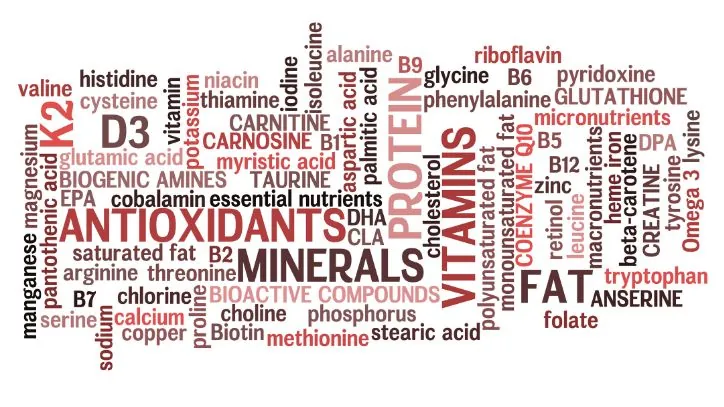Blog
Beef 101 – Nutritional Benefits of Beef

As the cooler months in Arizona make way for the searing 120-degree temperatures, we know what that means: backyard barbecues are just around the corner. While many people may dread the hot summer months, Arizonans have a silver lining to look forward to—grilling up some locally-raised beef. Not only is beef delicious, but it is also incredibly nutritious, making it a fantastic addition to summer meals.
Understanding the Basics of Beef Nutrition
When we talk about the nutritional value of beef, specific metrics stand out. A 3-ounce serving of sirloin steak contains approximately:
- 207 Calories
- 12 Grams of Fat
- 0 Grams of Carbohydrates
- 23 Grams of Protein
These numbers indicate why beef is a popular choice among those looking for protein-rich foods. Protein is not only vital for muscle repair but also plays a critical role in various bodily functions, including hormone production and the creation of enzymes.
Vitamins and Minerals in Beef
Beyond just the macronutrients, beef is a powerhouse of vitamins and minerals essential for optimal health. It is particularly rich in Vitamin B12, which is crucial for brain health and the production of red blood cells. Additionally, beef provides substantial amounts of:
- Vitamin B6
- Zinc
- Iron
- Selenium
- Niacin
- Phosphorous
These nutrients contribute to various bodily functions. For instance, Zinc is known for its immune-boosting properties, while Iron is vital for oxygen transport in the blood. Beef provides heme iron, a form that is more easily absorbed by the body compared to non-heme iron found in plant sources.

Other Healthful Compounds Found in Beef
In addition to its vitamin and mineral content, beef contains several healthful compounds that offer additional benefits:
- Creatine: This compound serves as an energy source for muscles, making beef excellent for athletes and fitness enthusiasts. It contributes to increased muscle mass and strength, as highlighted in various sports nutrition studies. According to research, creatine supplementation can enhance exercise performance and promote muscle growth.
- Taurine: An antioxidant amino acid beneficial for heart and muscle function, taurine plays a role in reducing the risk of heart disease by improving cardiovascular health.
- Conjugated Linoleic Acid (CLA): Found in ruminant animals, CLA has been studied for its potential benefits in weight loss and improving insulin sensitivity. Research indicates that CLA can help reduce body fat and enhance metabolic health.
- L-Carnitine: Known for its role in fat metabolism, L-Carnitine can improve heart health, fasting glucose levels, and cholesterol levels.
- Glutathione: This powerful antioxidant boasts anti-aging properties and helps reduce the risk of chronic diseases. Increasing glutathione levels can lead to improved immune function and longevity.
- Beta-alanine: An amino acid that enhances muscle function and reduces fatigue during high-intensity exercise, beta-alanine plays a crucial role in the production of carnosine, which helps buffer acid in muscles during exercise.
The Health Benefits of Beef Consumption
With a wealth of nutrients and beneficial compounds, there are numerous health benefits associated with consuming beef:
1. Muscle Mass and Physical Performance
One of the most noticeable benefits of consuming beef is its role in building muscle mass. The protein content combined with creatine provides significant support for those engaging in strength training or athletic activities. Studies show that diets high in protein, particularly from sources like beef, assist in muscle recovery, growth, and overall performance.
2. Prevention of Anemia
Beef is a significant source of heme-iron, which is vital for preventing iron-deficiency anemia. Unlike non-heme iron from plant sources, heme iron is absorbed more efficiently by the body. A diet including beef can help individuals meet their iron needs, particularly for those at higher risk for anemia, including pregnant women, infants, and individuals with heavy menstrual cycles.
3. Supports Immune Function
The zinc and selenium found in beef contribute positively to immune health. Zinc is critical for the development and function of immune cells, while selenium is known for its antioxidant properties and role in thyroid function. A diet sufficient in these minerals can enhance immune responses and help ward off infections.
4. Overall Nutritional Value
Beef provides a complete protein source, as it contains all nine essential amino acids that our bodies cannot synthesize. This makes it an excellent option for anyone looking to maintain a balanced and nutritious diet. Incorporating beef can make it easier to achieve nutritional balance, particularly for individuals pursuing specific dietary goals.
Arizona’s Beef Industry: A Local Treasure
Raising beef cattle is a significant agricultural commodity in Arizona, with ranchers producing enough beef to support approximately 8 million people. This local industry not only contributes to the economy but also provides residents access to fresh, high-quality beef. By supporting local beef producers, residents can enjoy the nutritional benefits while also promoting sustainability and local agriculture.
Environmentally Friendly Practices
In recent years, many Arizona ranchers have adopted sustainable practices, evolving towards regenerative agriculture methods. These practices not only ensure high-quality beef production but also restore soil health, improve biodiversity, and contribute positively to the environment. Sustainable ranching methods often include rotational grazing, which helps maintain ecosystems and reduce carbon footprints.
Tips for Grilling Beef Safely
As summer approaches and grilling season begins, keeping food safety in mind is essential. Here are some tips on how to safely enjoy beef during barbecues:
- Cooking Temperatures: Use a meat thermometer to ensure that beef reaches a safe internal temperature. For steaks and roasts, the USDA recommends cooking to at least 145°F, followed by a three-minute rest time. Ground beef should reach 160°F.
- Cross-Contamination: Keep raw meat separate from other foods to prevent cross-contamination. Use separate cutting boards and utensils for raw beef and other ingredients.
- Storage: Store any leftovers promptly in the refrigerator to prevent bacterial growth. Cooked beef should be consumed within three to four days.
- Thawing: Always thaw beef in the refrigerator, cold water, or in the microwave, rather than at room temperature, to avoid bacterial growth.
- Marination: If marinating beef, do it in the refrigerator rather than at room temperature, and always discard the marinade if it has been in contact with raw meat.
Conclusion
As we gear up for summer in Arizona, let’s embrace the delicious and nutritious benefits of locally-raised beef. The blend of high-quality protein, essential vitamins, and minerals, as well as an array of health-promoting compounds, makes beef a smart choice for anyone looking to fuel their body effectively.
So, when you fire up the grill this summer, consider preparing some tasty and nutritious Arizona beef dishes to share with family and friends. It’s not just about enjoying great food but also acknowledging the incredible health benefits and local agriculture that contribute to our community. And remember, May is National Beef Month—what a great excuse to highlight the fantastic flavor and nutrition that our local beef provides!
For more articles about health, nutrition, and Arizona agriculture, check out the Fill Your Plate blog.


















